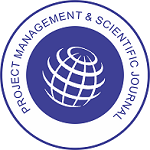Hanson Obiri-Yeboah | Agyeman Ofori
Accra Technical University | Takoradi Technical University
Abstract
The main study areas considered in this research are risk content of projects, effectiveness and efficiency of portfolio management units, procurement principles, factors that impede implementation of project audits and strategies to enhance effective project auditing. The research distributed structured questionnaires to the staffs of Ministry of Local Government and had a response rate of 72%, which was sufficient to make conclusive remarks on the total population. The research was conducted with the voluntary participation of supply officers, heads of PMO, directors, project managers, human resources persons, administrative officers and other officers of the Ministry of Local Government. These groups of respondents represented by 57.8% males and 42.2% females have good education backgrounds from certificate/diploma to doctorates. The significance of the high educational levels depicts the level of knowledge possessed by the respondents in contributing to the research topic. The respondents have diverse experience in handling projects ranging from project management, procurement and logistics, monitoring and supervision, project analysis and stewardship. The general information on the respondents was presented in Table 4.1. The first objective of the research was to analyze the risk content of respective projects. To achieve this objective, the researcher sought respondents’ understanding of risk and how it is handled in their organization. The definitions given to risks by the respondents include; uncertain events that affects project performance, possibility of loss or project failure, exposure to outcomes of uncertainty, gaps in knowledge that affects project objectives, and threat of damage, injury and loss. The significant factor in the definitions given is the fact that risks affect the objectives and performance of projects. The respondents also highlighted how they identify risks in projects as individuals and as an organization. The research reveals that individuals identify risks by brainstorming and challenging of assumptions, assessing any actions likely to affect project activities, analyzing the sequence of events within business operations, and comparing the projects to other completed and similar projects. The organizations also identify risks by carrying out SWOT analysis and interviews. The SWOT analysis is carried out to determine the organizations’ strength, weaknesses, opportunities and threats, a concept that takes into consideration internal and external factors of the organization. The respondents also ranked risk management processes from literature in order of importance. These include risk identification (1st), monitoring and reviewing of risk (2nd), analyzing the risk (3rd), treatment of the risk (4th) and evaluation or ranking of the risk (5th). The second objective of the research was to ascertain whether the project portfolio management units are suitable in terms of managing project activities in the organization. In order to achieve this objective, responses from the respondents were collated on whether their organizations have project management office and the functions of the units in managing projects. More than 70% of the organizations have PMO’s who operate as IT PMO and Enterprise PMO’s. The IT PMOs’ functions in the information technology unit whiles the enterprise PMO’s handles all kinds of projects. The third objective was to examine the effectiveness and efficiency of the portfolio management units in the organizations. The respondents were asked to rate the performance of their project management units and majority of the respondents representing (46.7%) said the project management units need improvement. Meanwhile, 30% of the respondents said the portfolio units are sufficient for their purposes. On the contrary, 4.4% of the respondents stated that the portfolio units are non-functional. The research revealed that in order to ensure effective portfolio management, there is the need to gather and upload vendor information, provide portfolio management plan and assess potential changes in the portfolio management process.
Keywords: Project Examination, Project Audit, Public Sector Project, Project Management for Development.

